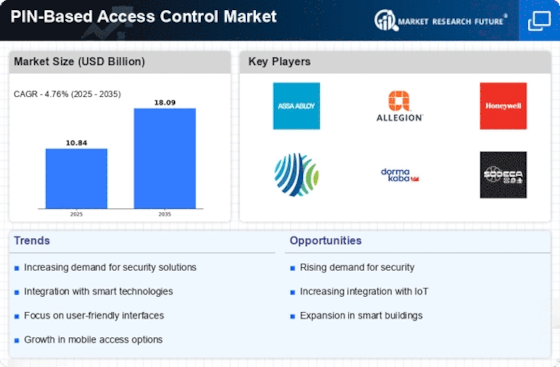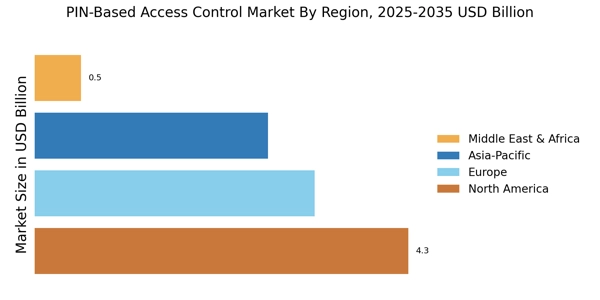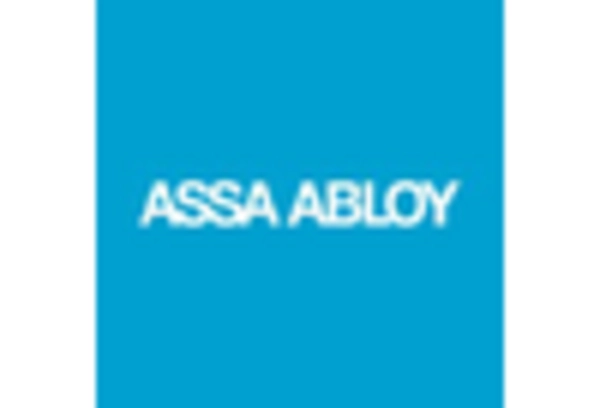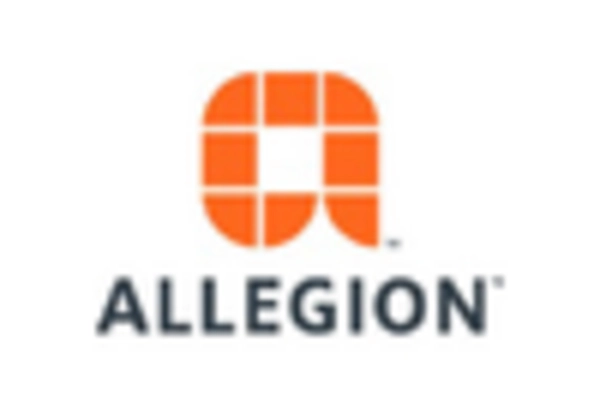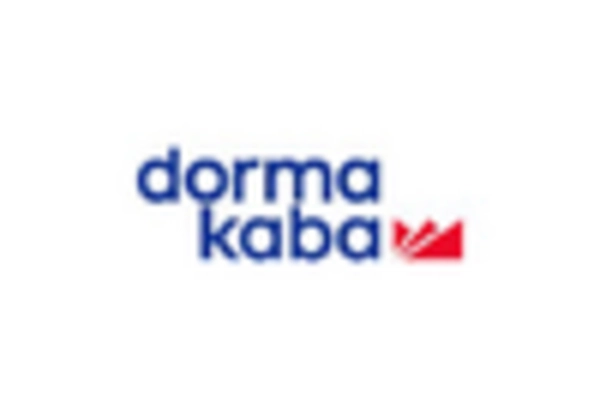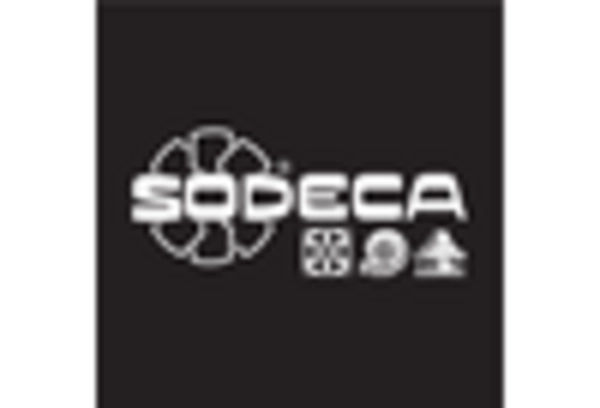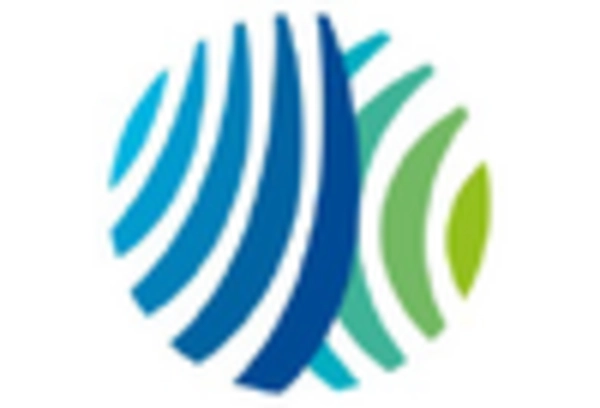Regulatory Compliance
Regulatory frameworks mandating stringent security measures are influencing the PIN-Based Access Control Market. Organizations are required to comply with various regulations, such as the General Data Protection Regulation (GDPR) and the Health Insurance Portability and Accountability Act (HIPAA), which necessitate the implementation of secure access control systems. The need for compliance drives the adoption of PIN-based solutions, as they provide a reliable method for controlling access to sensitive data and facilities. As regulatory scrutiny intensifies, organizations are likely to invest more in PIN-based access control systems, potentially leading to a market expansion of around 12% in the coming years.
Rising Security Concerns
The increasing prevalence of security threats has led to a heightened demand for robust access control solutions. Organizations across various sectors are prioritizing the protection of sensitive information and assets, which drives the PIN-Based Access Control Market. According to recent data, the market is projected to grow at a compound annual growth rate of approximately 10% over the next five years. This growth is attributed to the need for enhanced security measures, particularly in sectors such as finance, healthcare, and government. As organizations seek to mitigate risks associated with unauthorized access, the adoption of PIN-based systems is likely to become more widespread, reflecting a shift towards more secure operational practices.
Technological Advancements
The rapid evolution of technology plays a crucial role in shaping the PIN-Based Access Control Market. Innovations in software and hardware are enabling more sophisticated PIN-based systems that offer improved functionality and user experience. For instance, the integration of mobile applications with PIN access systems allows for seamless management and monitoring of access points. Furthermore, advancements in encryption technologies enhance the security of PIN codes, making them less susceptible to hacking. As organizations increasingly adopt these advanced technologies, the market is expected to witness significant growth, with estimates suggesting a potential increase in market size by 15% within the next few years.
Growing Awareness of Cybersecurity
As cyber threats become more sophisticated, there is a growing awareness of the importance of cybersecurity measures, which is positively influencing the PIN-Based Access Control Market. Organizations are increasingly recognizing that traditional security measures may not suffice in protecting against modern threats. This awareness is prompting investments in advanced access control solutions, including PIN-based systems, which offer a balance of convenience and security. Market analysts suggest that this trend could lead to a market growth rate of approximately 18% over the next few years, as businesses prioritize the implementation of comprehensive security strategies to safeguard their assets and information.
Increased Demand for Remote Access Solutions
The shift towards remote work has created a surge in demand for secure remote access solutions, significantly impacting the PIN-Based Access Control Market. Organizations are seeking ways to ensure that employees can securely access systems and data from various locations without compromising security. PIN-based access control systems offer a practical solution, allowing users to authenticate their identity remotely. This trend is expected to drive market growth, with projections indicating a potential increase in market share by 20% as businesses adapt to new working environments. The flexibility and security provided by PIN systems are likely to become essential components of remote work strategies.


